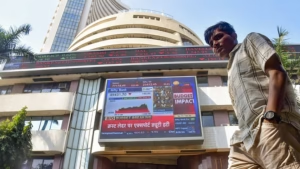Repo Rate Cut: Reduction in repo rates a strategic decision, will help in maintaining demand

New Delhi| The Reserve Bank of India has given a big relief to the market by cutting repo rates by 25 basis points for the second consecutive time. With this cut, the repo rate has come down to 6.0 percent which had reached 6.50 percent before February. With this, banks will be able to get cheap loans from RBI and this will affect retail loan holders. Due to reduction in repo rates for the second consecutive time, there will be increased pressure on banks to pass on these benefits to their borrowers and due to this there may be some reduction in the EMI of home loan and personal loan.
The reduction in repo rates amid US President Donald Trump’s tariff war is also being considered a strategic decision. The biggest reason for this is that the fear of global recession has deepened due to Trump’s tariff attack. It is believed that this will make Indian products expensive in America and its consumption may reduce. In such a situation, Indian companies may face a setback.
But if some compensation for the shortfall in the American market can be made by Indian consumers, then it will not only be a relief news for the companies, but it will also provide stability to the market. If loan rates come down due to reduction in repo rates, it will increase the demand for goods in the Indian market. This is why it is being considered a timely and appropriate decision.
Economic affairs expert Dr. Nagendra Kumar Sharma told Amar Ujala that inflation has been controlled in the retail market for some time. The prices of vegetables, fruits and grains have been controlled. Due to this, retail inflation rate has come under control. Since then it was being estimated that RBI could cut repo rates. And as expected, RBI has cut repo rates twice in a row, first in February and now in April.
Reduction in interest rates will help in increasing consumption in the market. Reduction in EMI will help in protecting customers from the brunt of inflation and diverting money into consumption of other goods. This step may prove beneficial to increase domestic demand amid global uncertainty.





